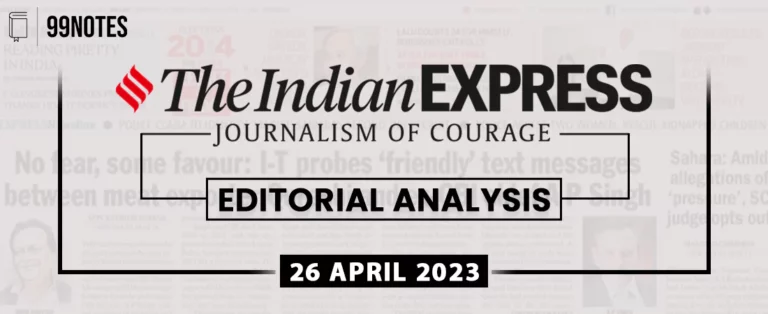23 October 2024 : Daily Answer Writing
Q1) Enumerating the challenges faced by the elderlies in India, discuss ways for mainstreaming the paradigm for geriatric care.
(250 Words/15 Marks)
ANS
The UN World Population Ageing Report notes that India’s ageing population is projected to increase to nearly 20% by 2050 from about 8% now. The welfare role of government requires it to proactively protect the elderlies against vulnerabilities. Article 41 (DPSP) exhorts the government to provide public assistance in old age.
The various challenges faced by the elderlies in India are as follows:
- Disintegration of joint families due to factors like urbanization and globalisation has led to reduced salience of elderlies in families. Issues like reduced sociability, loneliness and neglect cultivate depression among elderly.
- There is not enough care for elderly in small urban families as compared to joint families in rural areas. Migration of children to cities or to other countries forces many elderlies to live alone, making them targets of crimes.
- Lack of financial autonomy makes them completely dependent for their needs, affecting their quality of life. Their inability to keep pace with emerging technology adds to their isolation.
- While traditional support structure of families is on decline, the old-age homes have not been able to sufficiently fill in the gap. There is lack of government’s regulatory oversight over quality of services in old-age homes.
- Elderly women face the intersectional burden of old age and womanhood. Social inhibitions on re-marrying result in women living and dying in loneliness. Incidents of cruelty including mental and physical torture and abandonment by families are not unheard of.
- As per Longitudinal Ageing Study of India (LASI) 2020 report, 75% of the elderly population of India suffers from one or more chronic diseases such as arthritis, hypertension, cataract, dementia etc. Social security protections are insufficient.
Challenges faced by elderlies require a comprehensive framework for geriatric care in India. Following measures can be adopted for mainstreaming geriatric care:
- Government Measures:
- There is need for special fund to support research in geriatric diseases like dementia, Parkinson’s disease etc.
- Hub-and-spoke model can be adopted for supporting ill-equipped old-age homes through a model government-owned old-age home and/or health-and-wellness centres (HWCs).
- Government must create channel for private sector participation in devising solutions for elderly care. E.g., SAGE (Senior care Aging Growth Engine) portal to access elderly care products and services by credible start-ups.
- Civil Society Measures:
- Civil society can help the elderly though awareness generation, social and legal support through enforcement of Maintenance and Welfare of Parents and Senior Citizens Act 2007.
- Senior citizens must be involved by CSOs to cultivate ‘second demographic dividend’ for social work.
- Promotion of elderly health through camps for free basic health screening need to be combined with curated lessons for digital literacy and simple questionnaire to assess mental health.
- Measures by Families:
- Family must provide the role of primary care and support to elderly.
- Elderly should be involved in important decisions and events in the families.
- Children learn through osmosis. Thus, parents’ attitude towards elderly in the house is crucial.
Elderlies are an asset to the society, to which government, civil society and families are morally obligated. Welfare role can help by public provisioning of pension through schemes like Pradhan Mantri Vaya Vandana Scheme and Rashtriya Vayoshri Yojana. But the best way of taking advantage of elderly assets is by assimilating them into the mainstream. Models like Switzerland’s time bank, where younger generation can save time by volunteering to help elderly can be useful



